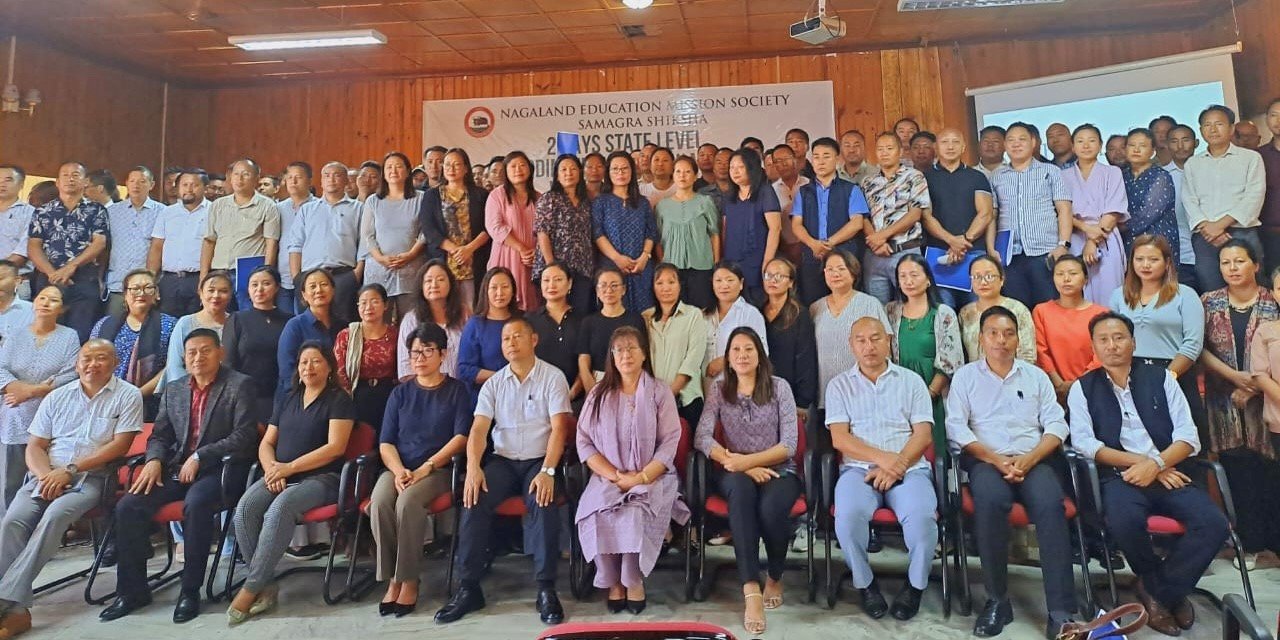Advisor for School Education and SCERT Dr Kekhrielhoulie Yhome on Thursday said less political interference should be there in the education sector.
Mentioning the issue of appointments, transfer and posting in the education department, the Advisor pointed out that many employees are politically appointed. He also said that there are almost 19000 teachers across Nagaland and almost 2000 to 3000 teachers are using political influence.
Advisor Yhome said this while addressing the two days state level coordination and review meeting with district mission authorities (DMA) and educational block resource centres (ERBC) organised by Nagaland Education Mission Society, Samagra Shiksha, Nagaland commenced today here at Administrative Training Institution, Kohima.
Observing that people with political influence only want to be posted in Dimapur and Kohima, and those without political influence lands up serving in the remote areas and retire there, Yhome asserted that there should be equitable and fair opportunity for everyone and to this, he said that the department will compartmentalize the 35 years of service.
“The musical chair has to take place,” he added.

Advisor for School Education and SCERT Dr Kekhrielhoulie Yhome
Raising concerns of the practice of parents not sending their daughters to school and helping them at home and sending only the boys to school, especially in primary and middle school, the education Advisor said this practice should be done away and for this, the village councils, student unions of the village and the range of the village should be engaged.
Yhome also said parents need to know that it is not only Right to Education but if they do not send their children to school, they will be liable for punishment and will be answerable.
“We have 4 lakh students from primary to secondary level, this includes private and government. Government has 1.5 lakh students and the private have 2.5 Lakh students. So, in two years with our support, leadership we shall be having a target of bringing 1 lakh students back into our government schools,” added Yhome.
He also mentioned that the department is in the process of studying how other areas especially like New Zealand and in rural China do the primary schooling system.
He also stressed on focusing on pre primary and primary schools and the need to establish more primary schools, including in the unrecognized villages on need basis.
“We cannot deny them education. If necessary open a new primary school,” said Yhome.
Download Nagaland Tribune app on Google Play

Kevileno Angami, Commissioner & Secretary, School Education SCERT & Vice Chairman NEMS, in her brief address asserted that since 2020 to 2022 there has been improvement in the school education indicators for the state of Nagaland in terms of the transition rate in the elementary level and secondary level and there has been a reduction in the dropout rate at the elementary and secondary levels.
She said this has been possible because of all the people who are involved, working in the education sector and primarily because of those who are in the schools, blocks transacting education in the classrooms supported by the various activities carried out by officials of SSM.

Kevileno Angami, Commissioner & Secretary, School Education SCERT & Vice Chairman NEMS
Angami said, with the New Education Policy 2020 being implemented, various activities are being imposed in the state and ultimately it boils down to implementation of these activities in the blocks and schools to be carried out by the officers.
She pointed out that there are various challenges and issues when it comes to implementation of the various activities in the blocks and schools but at the same time they are also capacitated to deal with these challenges and issues. She also emphasised on the need to be adaptive to the changes.
She stressed on the need that whatever activities are being carried out and implemented should not be just for the sake of implementing it but to be conscious that these activities have to be meaningfully carried out and transacted in the schools.

